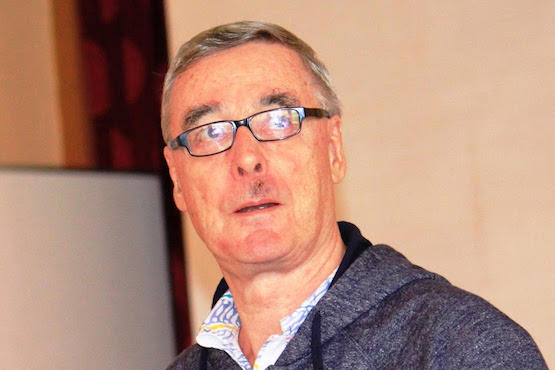Priest Criticizes Vatican over Indonesian Bishop Case
By Ryan Dagur
A British-born priest who has served in Indonesia for more than 40 years has called on the Vatican to end its tradition of keeping disciplinary cases involving the clergy confidential and demanded changes to the way bishops are appointed. In an opinion piece published in Hidup, a weekly magazine published by the Jakarta Archdiocese, Divine Word Father John Mansford Prior, a missiology lecturer at the Catholic School of Philosophy in Maumere on the Catholic majority island of Flores said the handling of moral cases involving clergy must be "completely transparent, just like in the state system." "If the Holy See compels a bishop to withdraw, the results of the trial [of a bishop] must be officially announced," he argued. Father Prior, who also works at the Candraditya Center for the Study of Religion and Culture in Maumere is a former consultor of the Pontifical Council for Culture and the Federation of Asian Bishops' Conference (FABC). His article, published in the Oct. 29 edition of Hidup, specifically addressed the resignation of Bishop Hubertus Leteng of Ruteng. Pope Francis approved Bishop Leteng's resignation on Oct. 11 after an investigation into allegations of misappropriating more than US$100,000 of church funds and an illicit relationship with a woman. In its official announcement, the Vatican did not give a reason for Bishop Leteng's resignation. Father Prior told ucanews.com on Nov. 1, that in addition of transparency, the church should also encourage due process. "If there were credible accusations, the clergy, whether it's a priest or bishop being accused, should be immediately discharged, certainly with innocent prejudice," he said. The church is not credible in handling such cases, he argued because "priest investigates priest, bishop investigates bishop and it is done in private." "Who can really believe in the results of such a process?" He pointed to a case in Flores where a priest was rumored to have a mistress, prompting a probe by his provincial. "The result, it is said to be gossip. The problem is, the investigation process is not transparent. Even worse, the results were not announced from the pulpit. So, gossip continues," he said. The priest said by promoting transparency, the church "acts fairly with the accused bishop or priest, as well as the lay people who are surrounded by gossip." With the present model, he said, the church also just focuses on the perpetrator and not the victims. "Victims should have sufficient counseling and receive compensation according to state rules, while the perpetrator is treated as a perpetrator," he said. In his article, Father Prior also highlighted the need for change in the appointment of bishops. He said Pope Francis' idea to openly ask priests, members of religious congregations and laypeople in the Rome Diocese to recommend candidates for the post of vicar general could be applied around the world. "If this has happened in Rome, the question arises whether the Holy See will launch a similar model for the whole church," he said. He admitted there is a danger that open consultation could be politicized, but questioned whether the present behind closed doors system was better. The board of nine cardinals who consult with the pope every three months has discussed the possibility of making procedures for the election, appointment or resignation of a bishop a more open process. "May their recommendations be immediately discussed extensively so that a new model can be applied," he said. Rikard Rahmat, a lay leader, called Father Prior's comments "brave," considering many in Indonesia consider criticism of the church taboo. "It is fortunate that such opinions are delivered directly by a clergy member. If laypeople said that, it would be considered undermining the authority of the church," he said. He said the Bishop Leteng case should prompt the church to review the way it selects bishops.
|
.
Any original material on these pages is copyright © BishopAccountability.org 2004. Reproduce freely with attribution.
